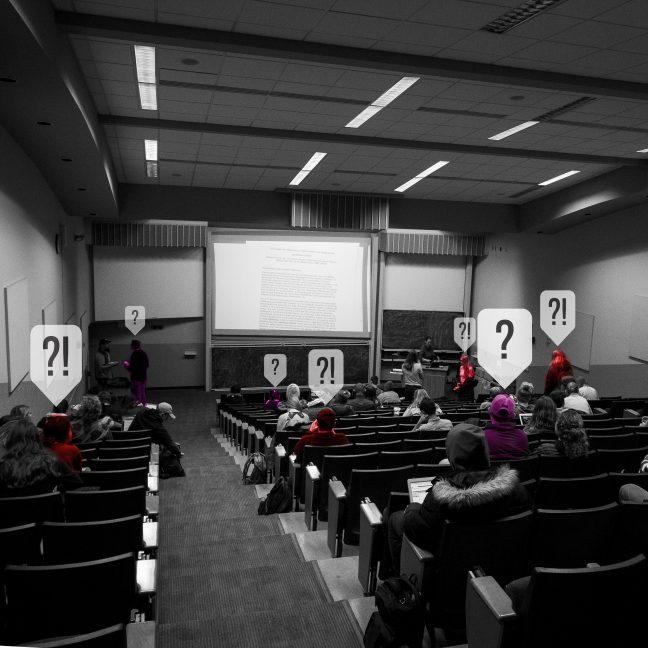WICCD introduced the grant cycle last spring and awarded grants to seven UW schools. The program awarded $15,000 to support facilitator training to UW-Madison’s La Follette School of Public Affairs for their project titled, “A Remedy for Polarization? Citizen Conversations Across Partisan Difference,” according to the WICCD grant program page.
The School of Public Affairs is conducting community conversations across six different Wisconsin cities, Director Susan Webb Yackee said. Two of the events are traditional town hall events, where community members identify what policy issues they want to discuss and faculty members speak on their expertise regarding the topics. The other four are more interactive roundtable discussions, where people across all political identities can come together to engage in civil discussion on policy issues, Yackee said.
Yackee said the grant money has gone toward training the moderators who direct the community discussions. These conversations are integral to connecting community members during times of intense polarization, according to Yackee.
“It’s a wonderful source of funding for work that’s important to the state,” Yackee said.
WICCD awarded $13,000 to UW-Oshkosh’s project, “Foundations in Facilitating Dialogue,” led by the school’s Director of the Center for Civic and Community Engagement Mike Lueder, according to the WICCD grant program page.
The funding was used to launch in-person workshops led by the Constructive Dialogue Institute, where instructors receive training on strategies for promoting civil and constructive dialogue, Lueder said. The grant almost entirely funded the integration of CDI and without it, their faculty would not have been introduced to the training at all.
Lueder said he always encourages people to apply for grants that are offered through the UW system. Such grants are meant solely for UW schools, meaning the competition is smaller for faculty or students considering applying, Lueder said.
“They really understand the work that we’re doing, and they want us to be productive and successful on the campuses,” Lueder said.
UW-Whitewater’s LEARN center received a $13,000 grant to finance the training of instructors in teaching civil dialogue, LEARN Center Director Rimi Zakaria said. LEARN is dedicated to enhancing student learning through ongoing staff development, according to its website. The training helps faculty come up with more effective assignments and improve upon their teaching methods surrounding civil dialogue, Zakaria said.
The grant helps students develop crucial workplace skills, such as empathy, tolerance and the ability to collaborate with people who have different mindsets, making them valuable assets to employers, Zakaria said.
“We think it’s a skill to be learned,” Zakaria said. “You can listen to a different viewpoint and think about it, no matter what the viewpoint is.”
These skills make up a large part of what WICCD hopes to achieve with its grant program. WICCD’s purpose is to encourage education surrounding civic knowledge and democratic engagement, Pitsch said. Specifically, WICCD aims to provide the resources to UW schools necessary for training and modeling proper civil dialogue.
Ensuring students understand the presence of differing viewpoints on their campus and providing them with opportunities to engage in civic participation is one of WICCD’s main goals, Pitsch said.
The grant program is intended to encourage these values within UW campuses, specifically by providing funding to students or faculty who are interested in igniting their ideas around civic engagement through activities like research, events, assessment and evaluation or curriculum and professional development, Pitsch said.
Zakaria expressed her opinion on the importance of these grants in a big-picture context.
“I think the more people who want to do a range of activities to promote civil dialogue, the better we become as a society,” Zakaria said. “We rely on more people to join these efforts.”
To apply for the grant, applicants submit a proposal no longer than 1,500 words that communicates their project’s alignment with WICCD’s missions. The proposal should also touch on the need for the project, including clear objectives and impacts, a plan for assessing the project and its results, the qualifications of the applicant and an itemized budget, Pitsch said.
Proposals will be initially reviewed by the WICCD director to determine whether they move on to content experts for further evaluation. From there, experts suggest the director to either fund the proposal as submitted, offer the applicant the option to resubmit with corrections or reject the proposal for specified reasons, Pitsch said.
WICCD’s main goals with the grant program are to support academic freedom, free expression and civil dialogue across the Universities of Wisconsin, Pitsch said.
A total of $90,000 is budgeted for the fall grant cycle and fall semester proposal applications are due Oct. 15, according to the grant program’s website.


